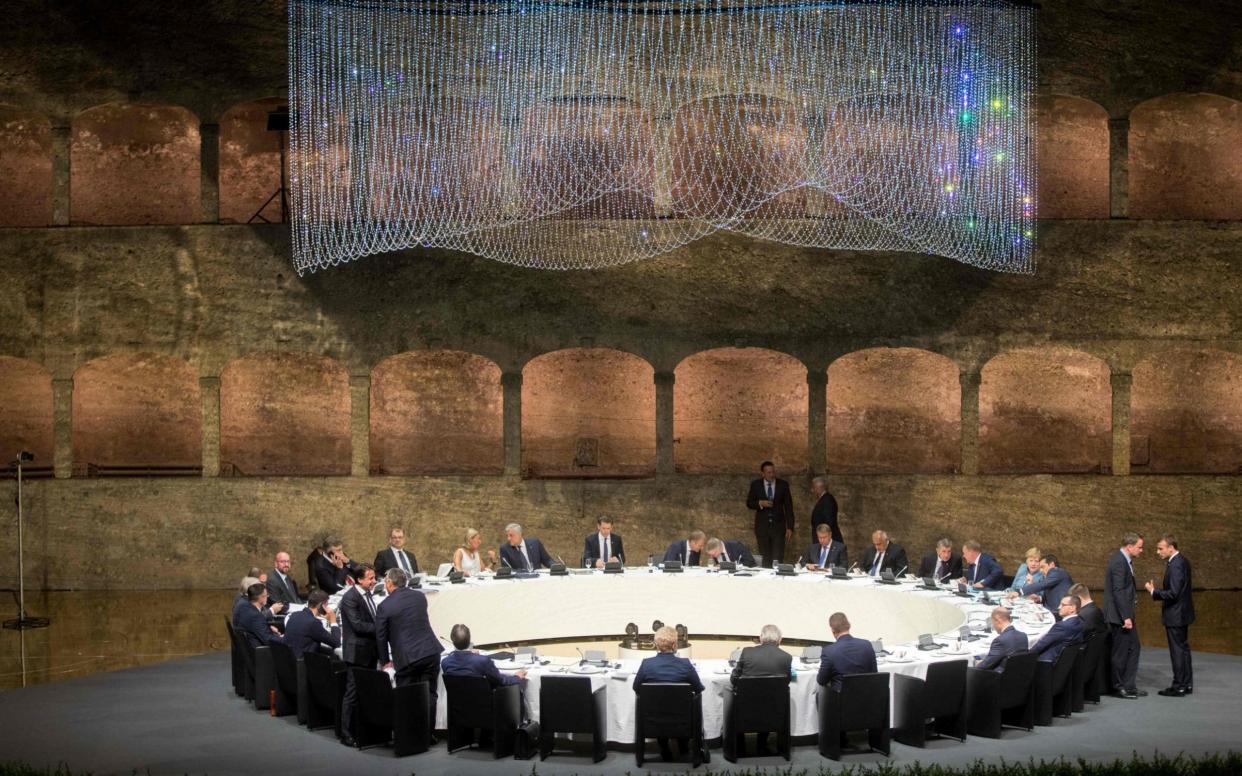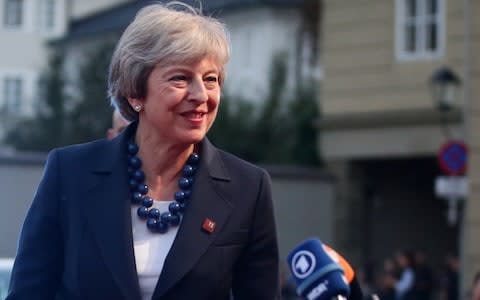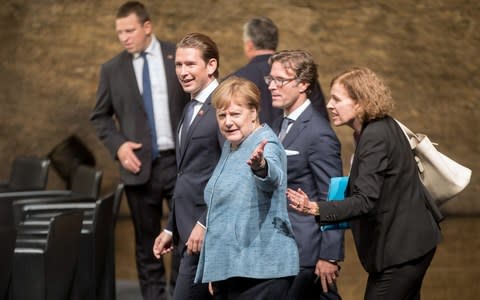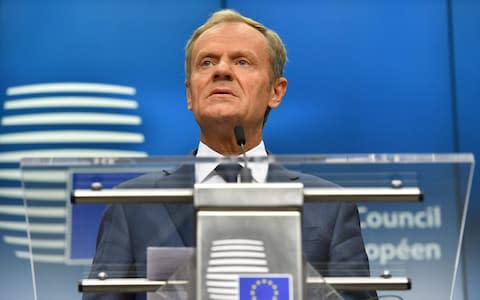Britain is willing to walk away without a deal, Theresa May warns EU leaders in Salzburg

Theresa May warned EU leaders on Wednesday night they must reach agreement on Brexit by November or the UK will walk away without a deal.
Addressing the 27 other member states for the first time since her Chequers plan was revealed, the Prime Minister said there would be no delay to the Article 50 process and no second referendum.
Speaking in Salzburg, Mrs May insisted that “delaying or extending these negotiations is not an option”, no matter how much leaders disliked her plan.
She also told the EU to stop trying to force through an “impossible” solution for Northern Ireland, which would create a border in the Irish Sea.
However, leader said afterwards there had been no progress on Brexit and the Irish border. "At this stage, it's a standstill. There is no progress," Lithuanian President Dalia Grybauskaite told Reuters after the dinner.

Earlier Donald Tusk, the EU council president, said that Chequers would have to be “reworked and further negotiated” as leaders struggled to find common ground over the border issue.
Jean-Claude Juncker, the president of the European Commission, also said the UK and Europe were still “far away” from reaching a satisfactory deal.
At a dinner in Austria, Mrs May told EU leaders: “We all recognise that time is short but delaying or extending these negotiations is not an option.
“I know that for many of you Brexit is not something you want but it’s important to be clear that there will be no second referendum in the UK.

“The public has delivered its verdict and I as Prime Minister will deliver upon that. The UK will leave on March 29 next year.”
She added: “I believe I have put forward serious and workable proposals. We will of course not agree on every detail but I hope that you will respond in kind. The onus is now on all of us to get this deal done.”
A source close to the Prime Minister said her remarks were also designed to end speculation in London about a second referendum vote as Sadiq Khan, the city’s mayor, backed the idea.
The Prime Minister also called on Jeremy Corbyn, the Labour leader, to rule out a second vote, claiming the British people voted to leave and their decision must be fulfilled.

Ahead of the dinner, at which Mrs May was given 10 minutes to make her case with no further discussion allowed, the leaders of Austria, Luxembourg, Slovenia and Germany all warned a no-deal Brexit could not be an option.
The prospect of the UK leaving without an agreement would leave all parties worse off, Mrs May has warned, but she is understood to be prepared to push ahead with the dramatic move if an impasse over the border in Northern Ireland cannot be resolved.
Mr Tusk told reporters ahead of the summit that although the UK’s position had evolved, there was still a long way to go before a deal was reached.

He said: “The Brexit negotiations are entering their decisive phase. Various scenarios are still possible today, but I would like to stress that some of the Prime Minister’s proposals from Chequers indicate a positive evolution in the UK’s approach as well as a will to minimise negative effects of Brexit.
“On other issues the UK’s proposals will need to be reworked and further negotiated. Today there is perhaps more hope, but there is surely less time.”

But he appeared to offer a way out of the deadlock, announcing a last-ditch summit in November to try to thrash out an agreement.
Despite the tough talk on all sides, some EU and UK insiders believe a deal is closer than it looks as the fear of a possible no-deal and pressure on negotiators from the member states grows.
Chancellor Angela Merkel of Germany, one of the most powerful leaders, said: “I hope that we have an exit that takes place in a good atmosphere, with great respect for each other and that in certain areas, very close cooperation is possible, namely in the areas of domestic and foreign security.”

Sebastian Kurz, the Austrian chancellor, added: “We must do everything to avoid a hard Brexit. It would not just harm the British, but would also cause damage for us in Europe.”
However, Mrs May’s efforts were hampered by some in her own party who warned the Chequers deal was a “non-starter”.
David Davis, the former Brexit Secretary said: “We have been told that the Chequers proposal fulfils what the British people voted for. Well, I am afraid I simply do not buy that. Fifty-two per cent of British voters oppose the proposals. Only 18 per cent approve. It is quite remarkable for a government policy to be that unpopular.”

 Yahoo News
Yahoo News 
